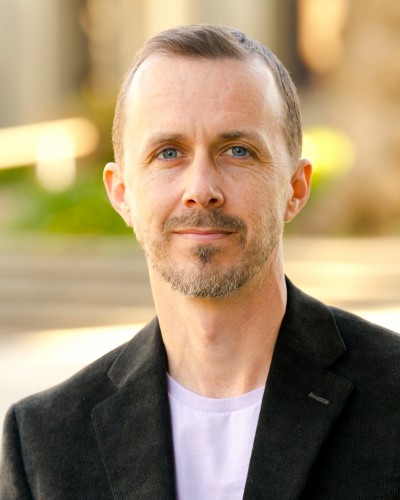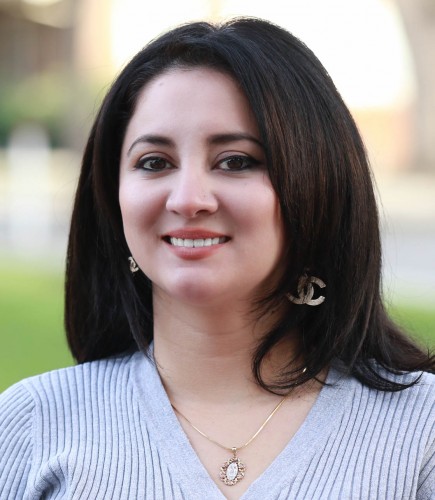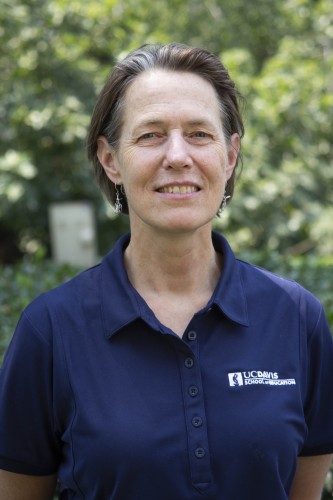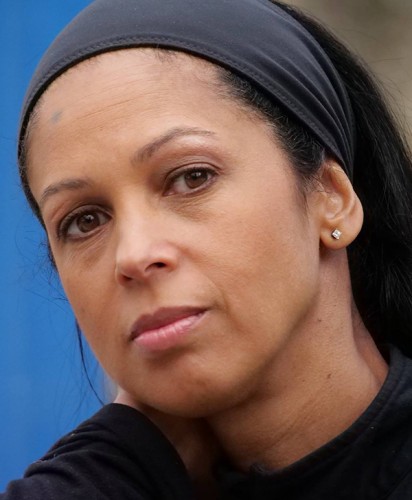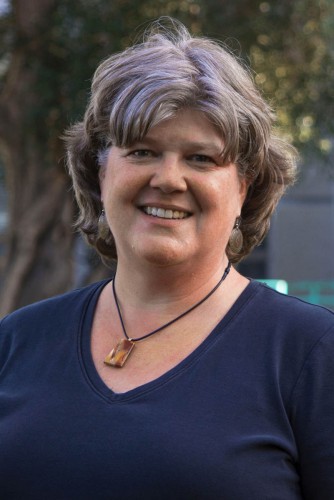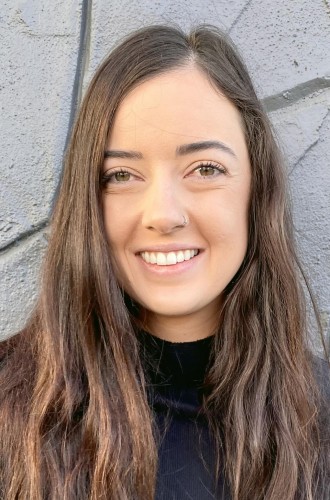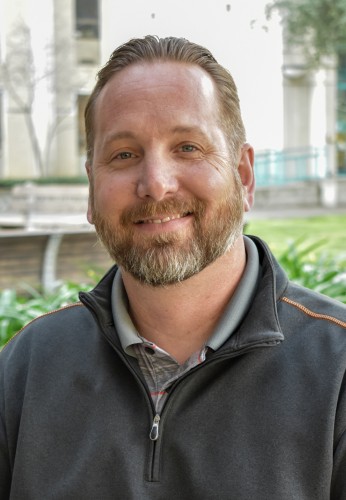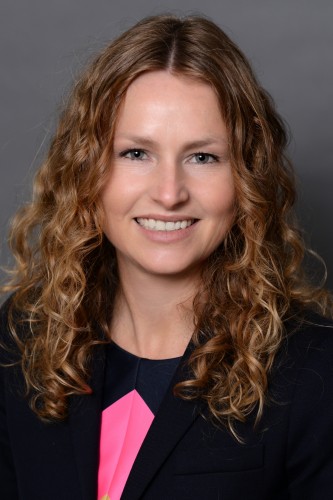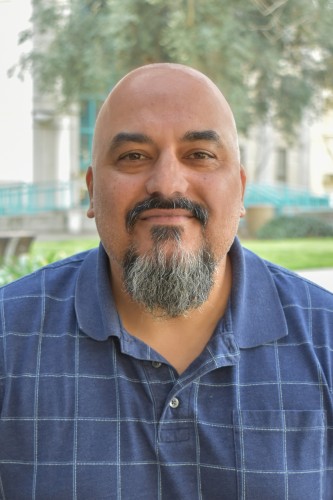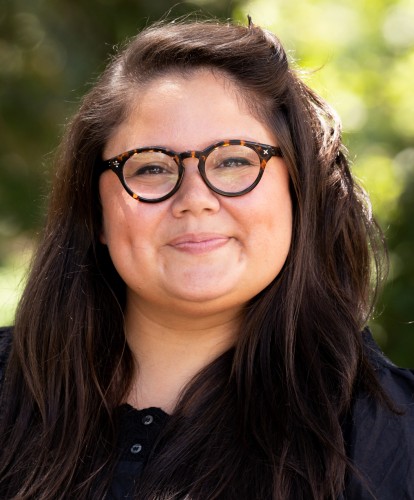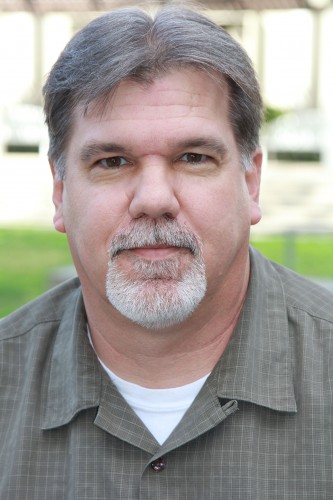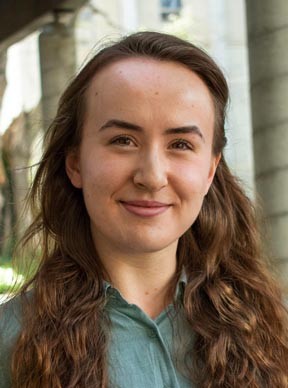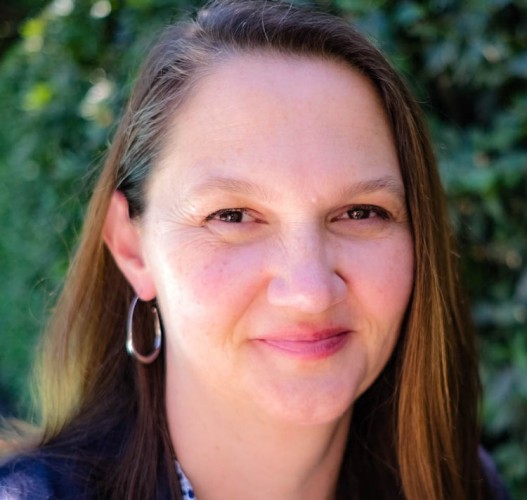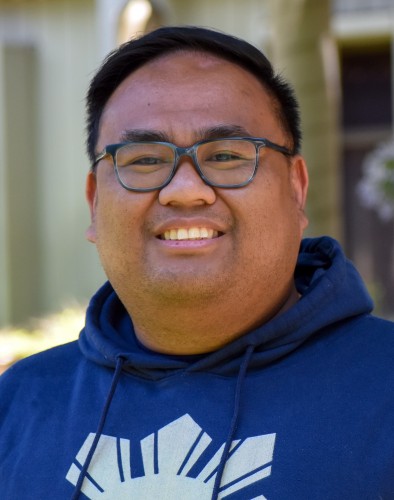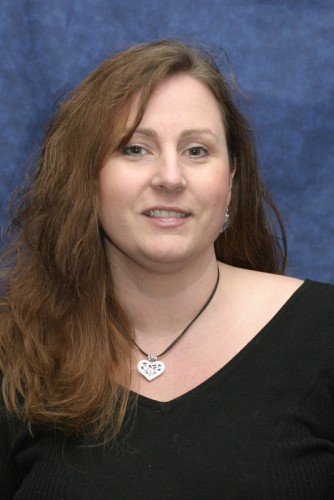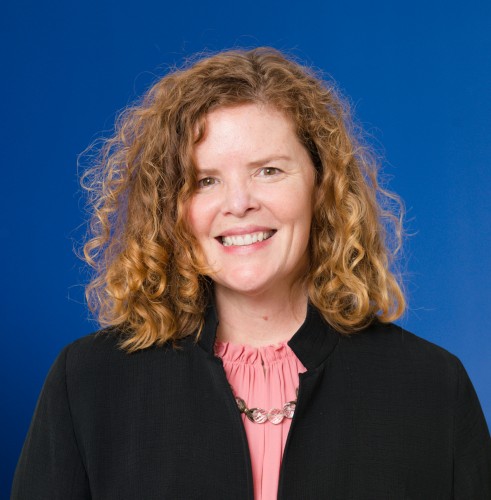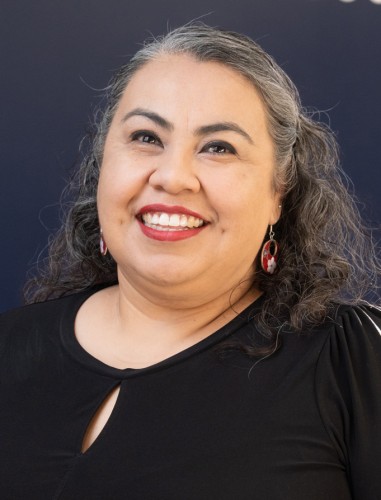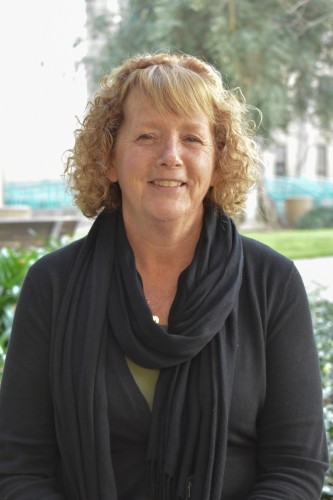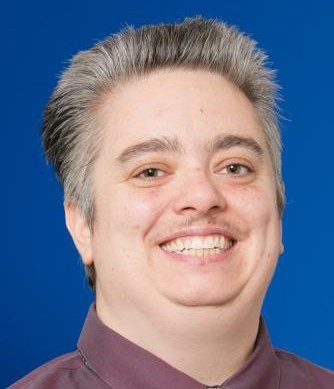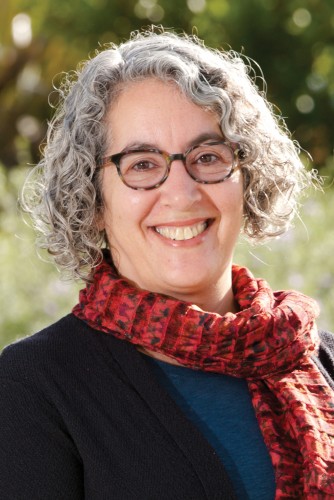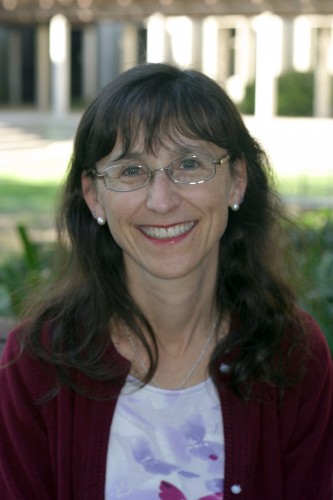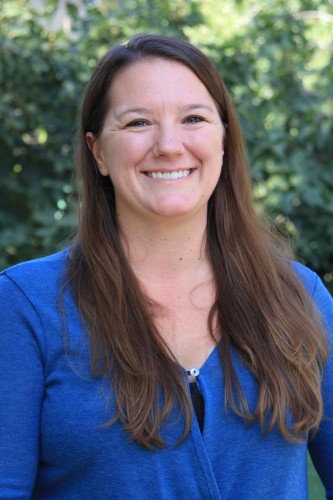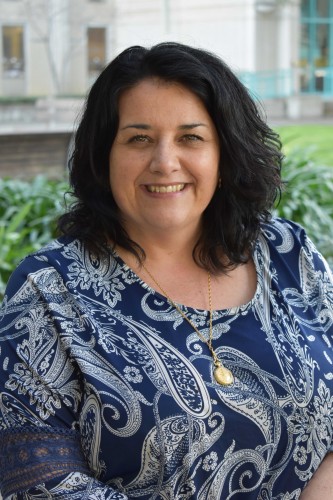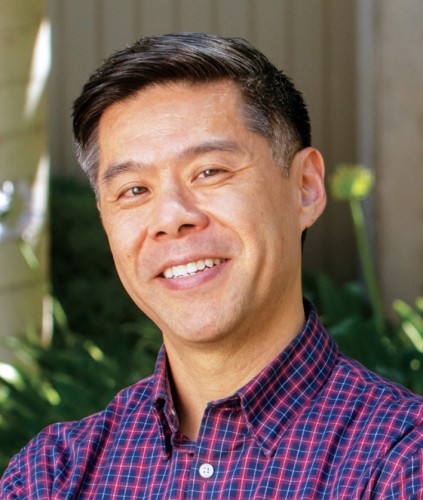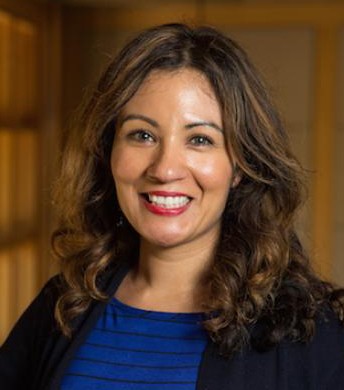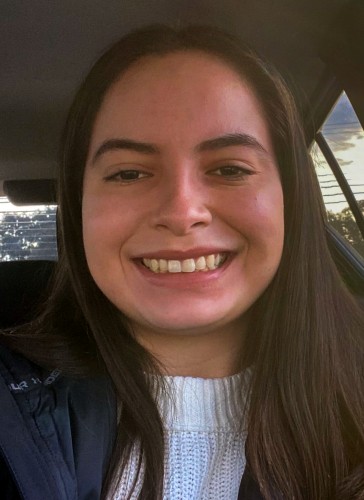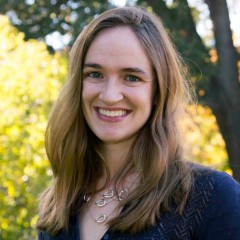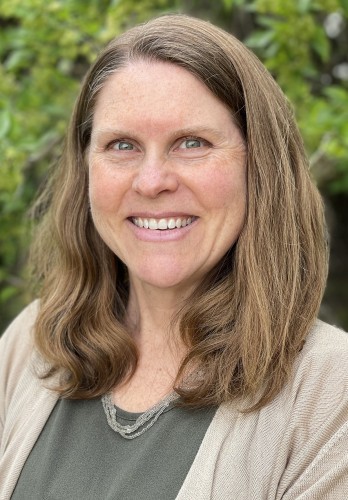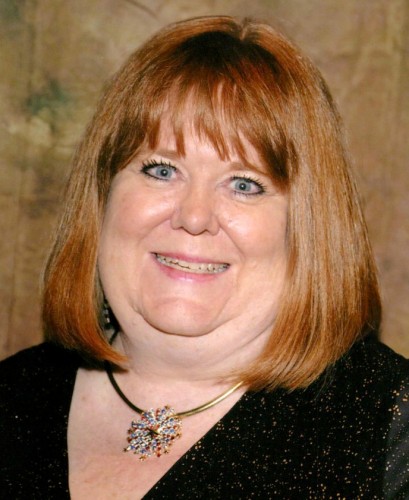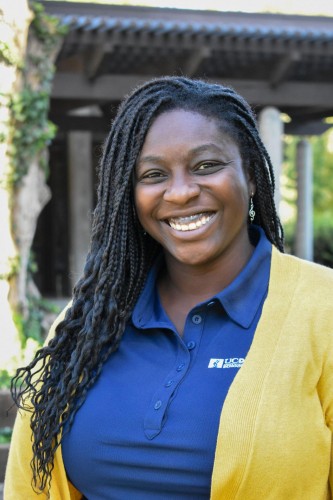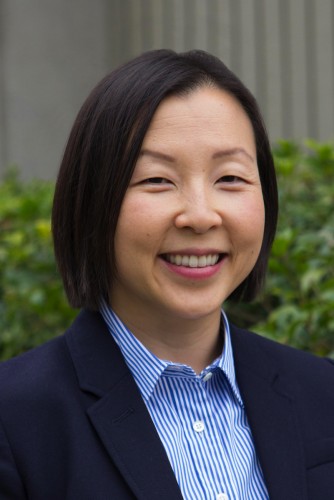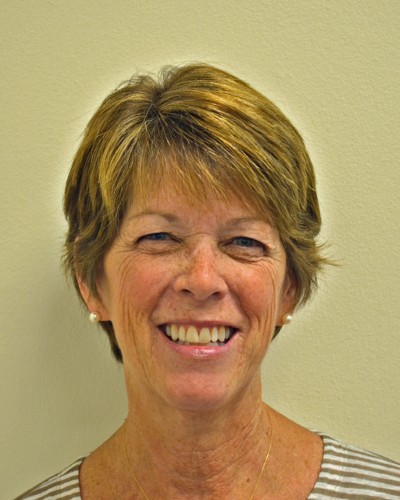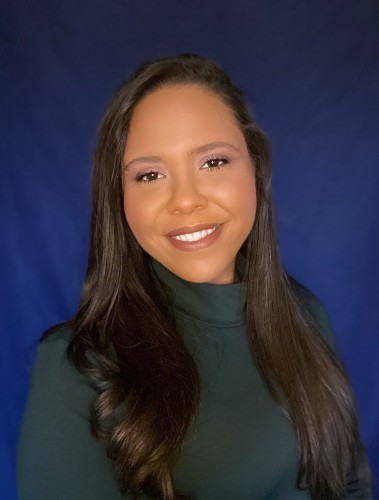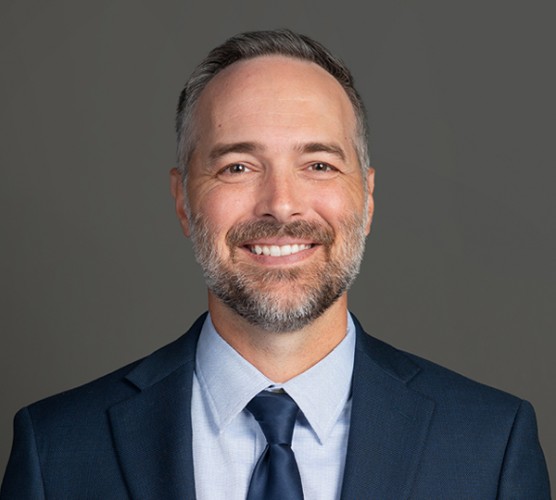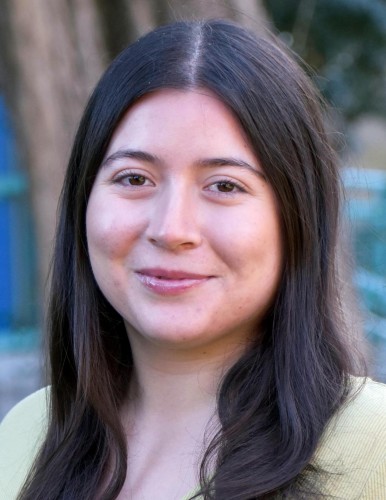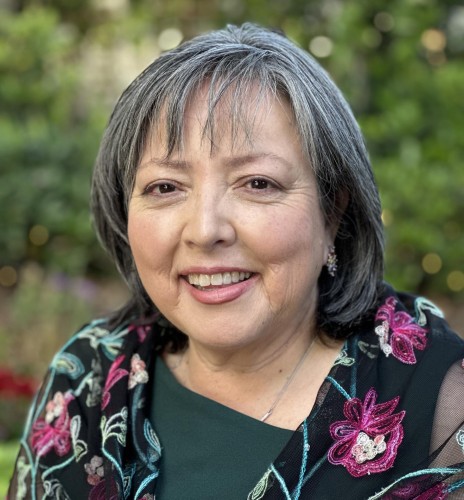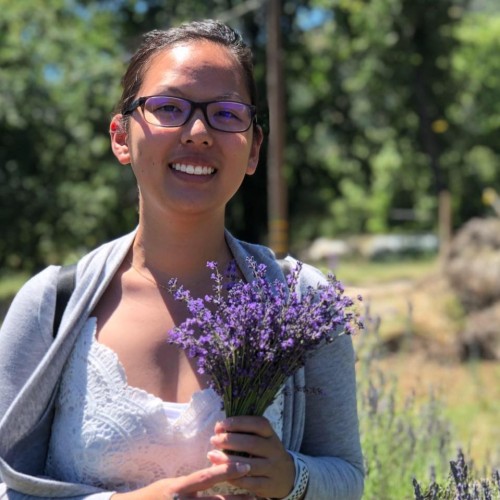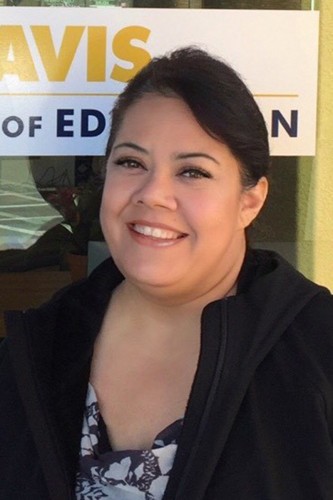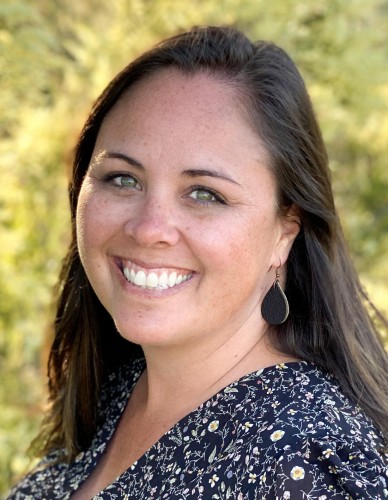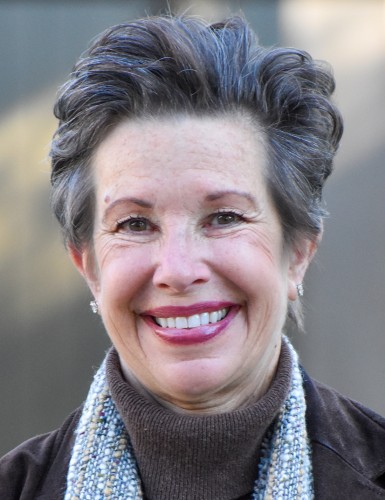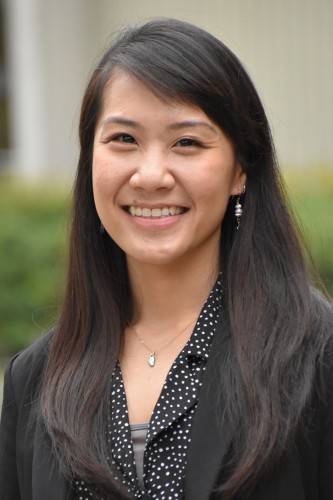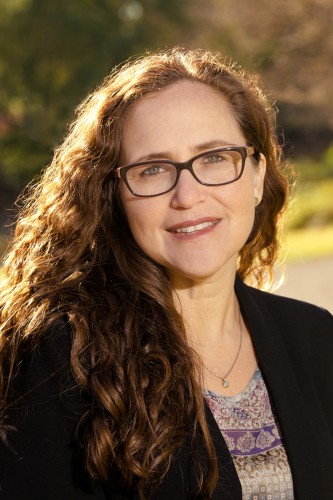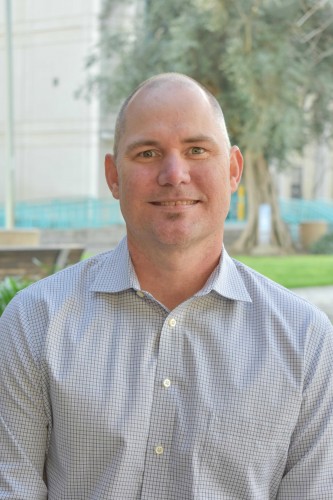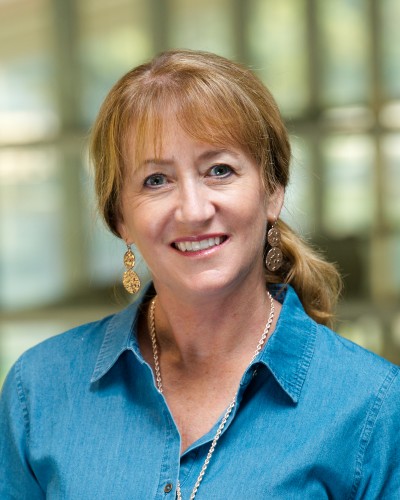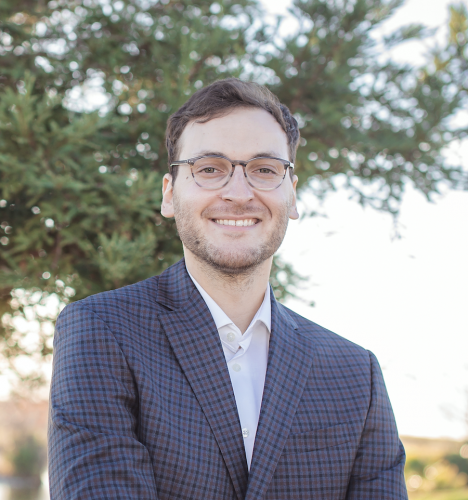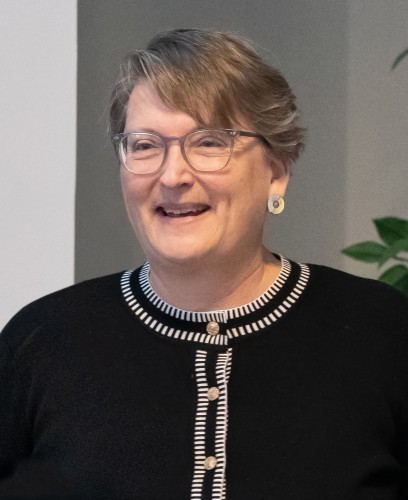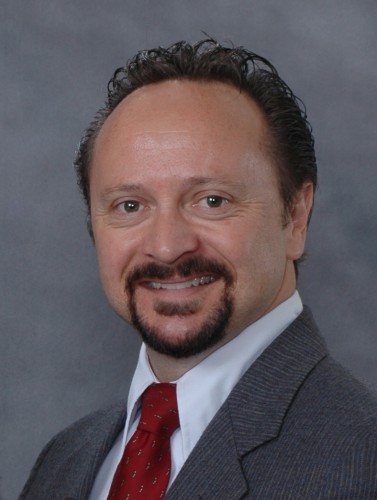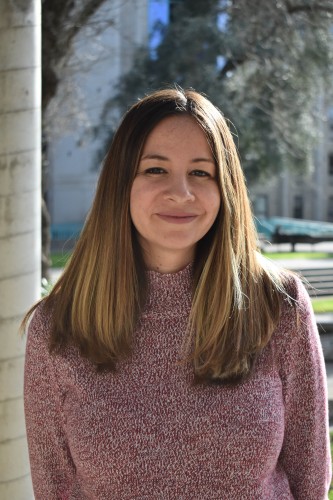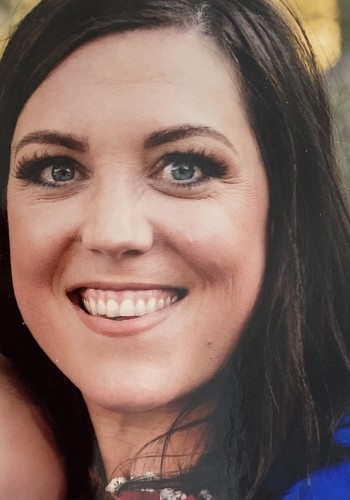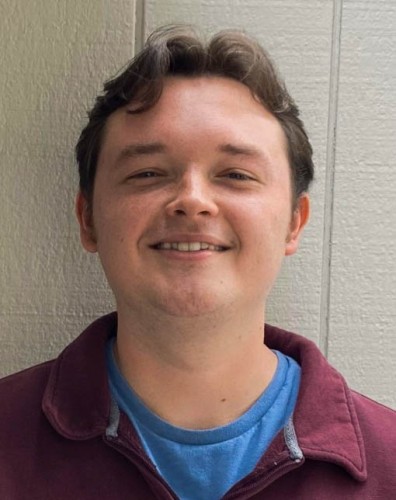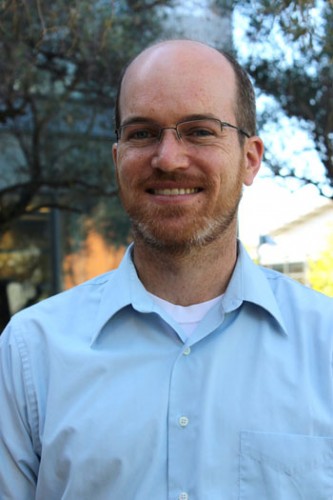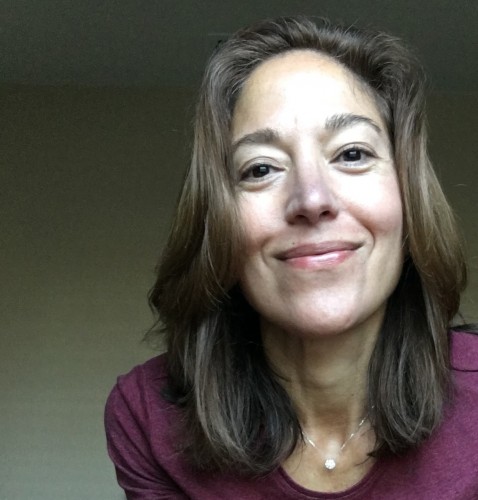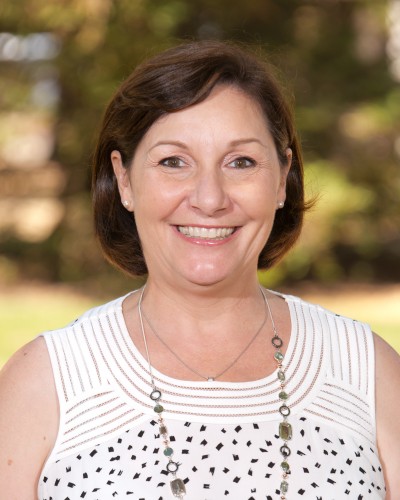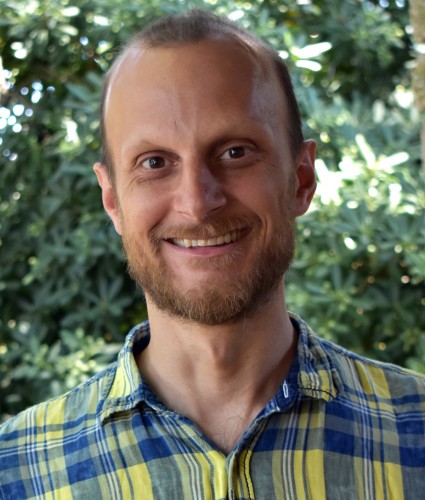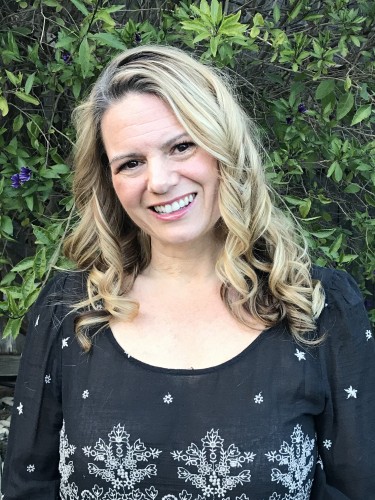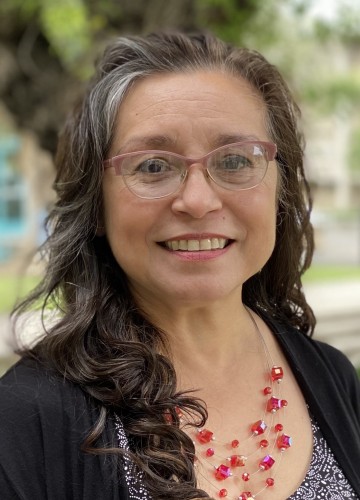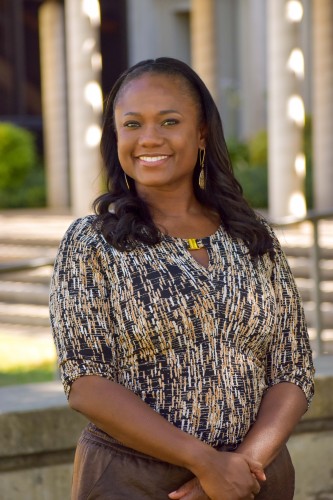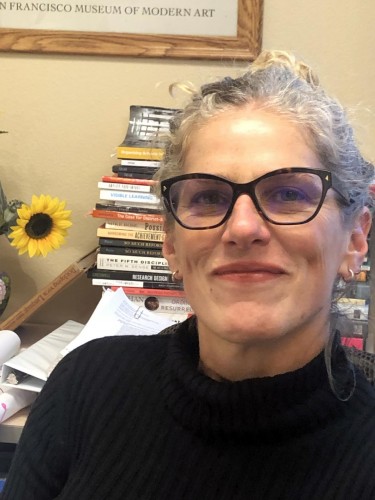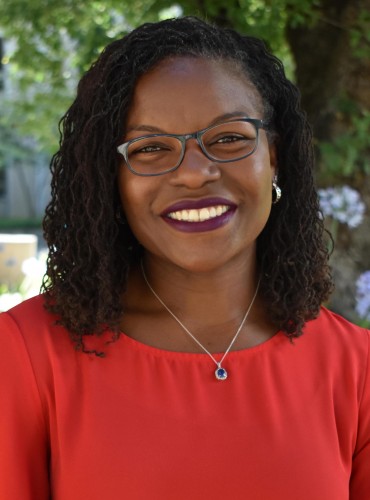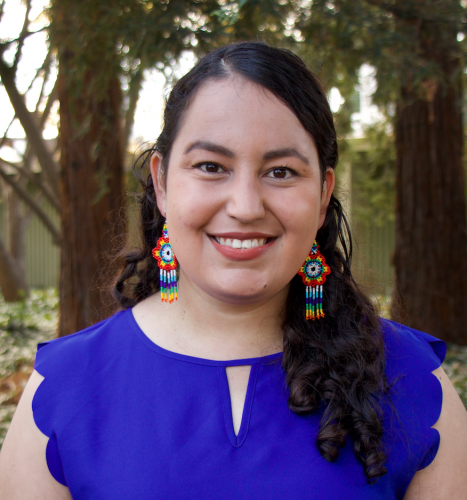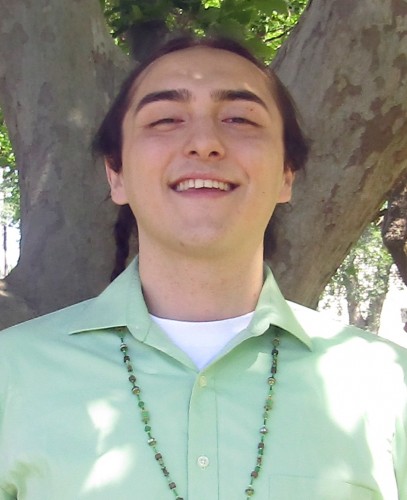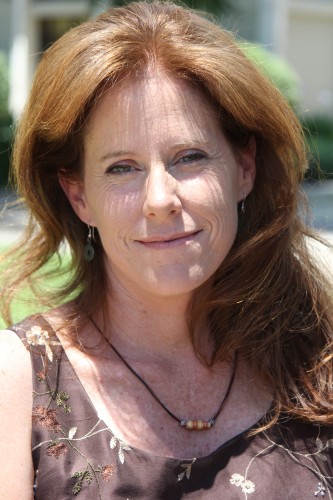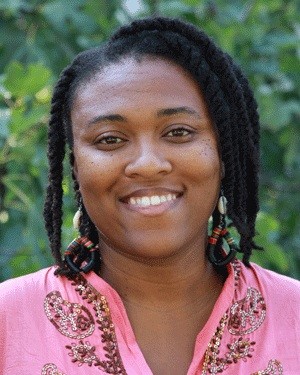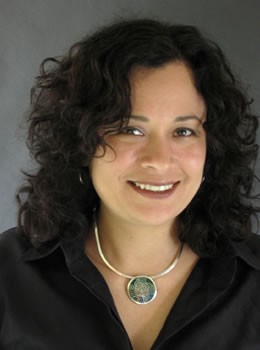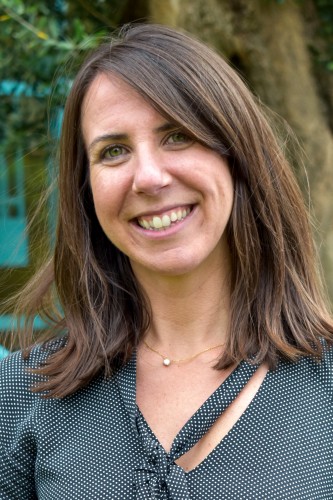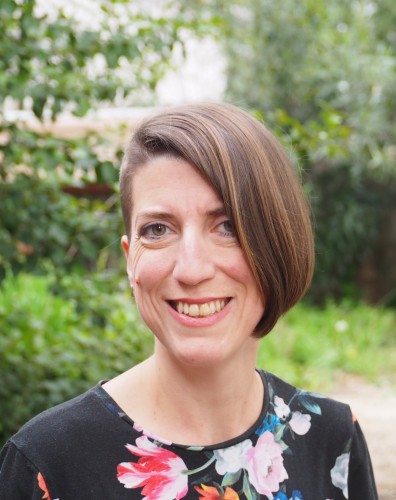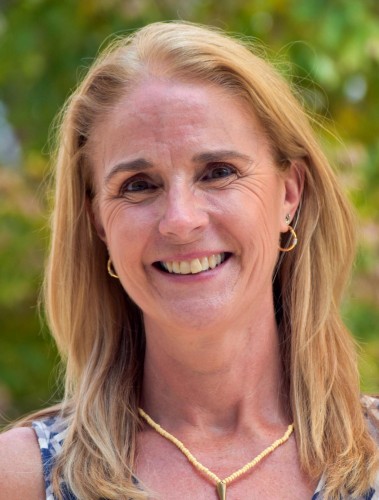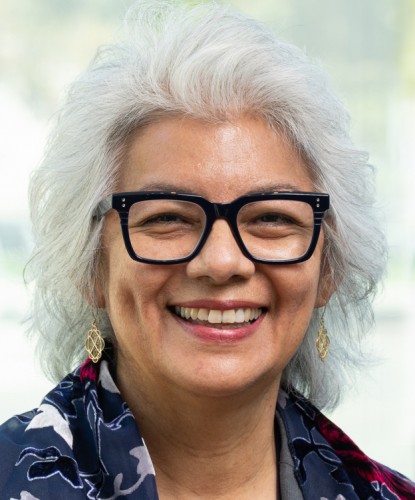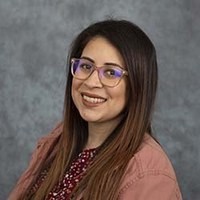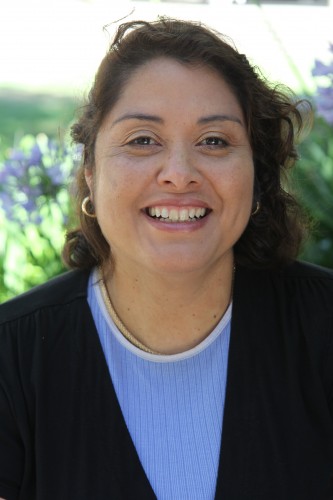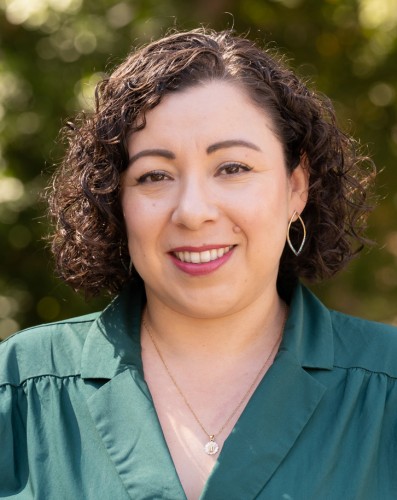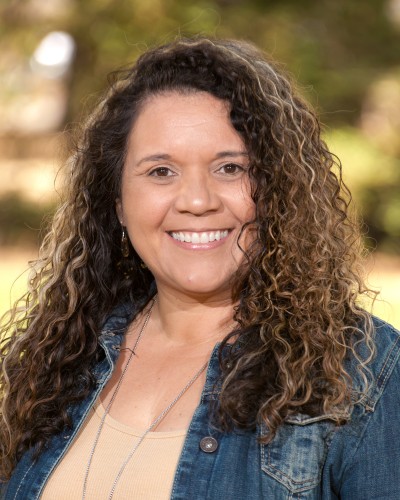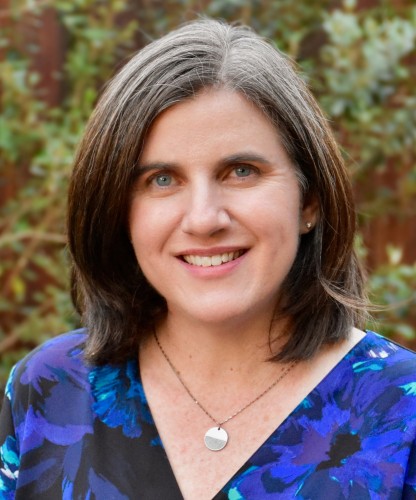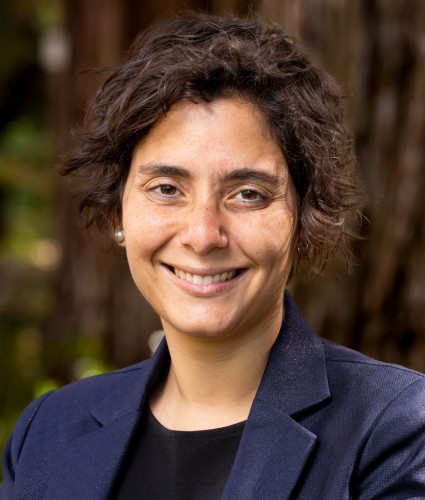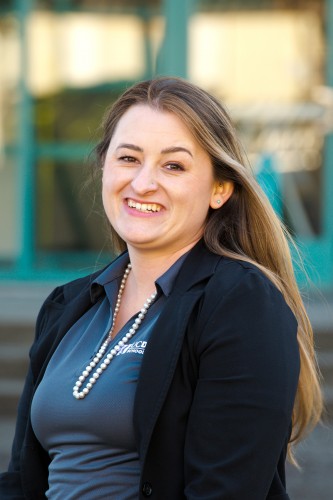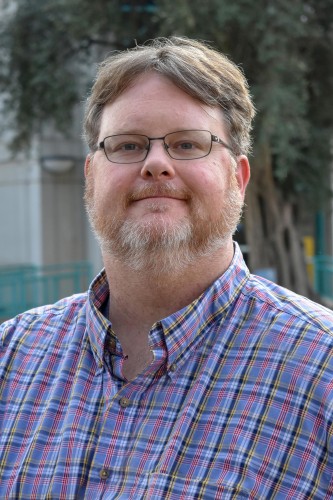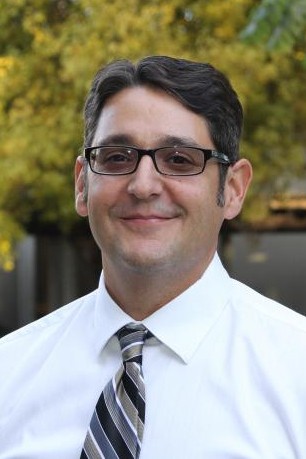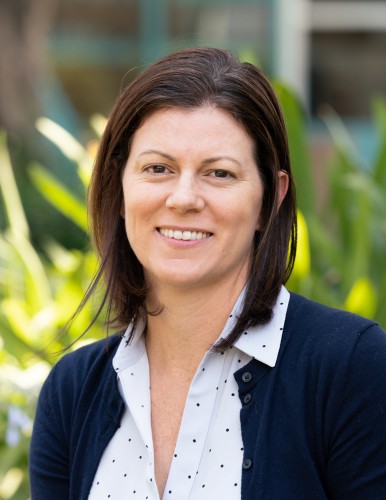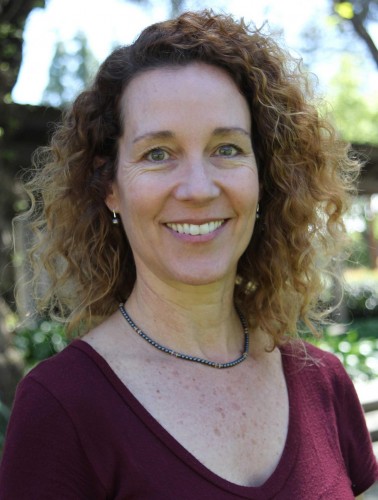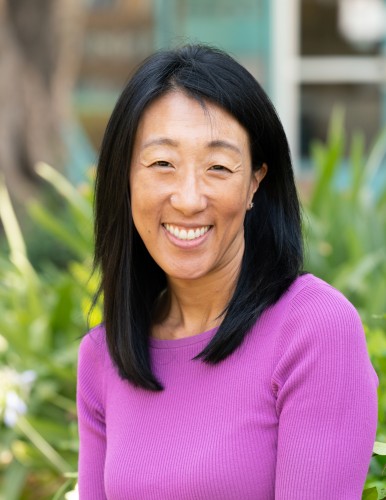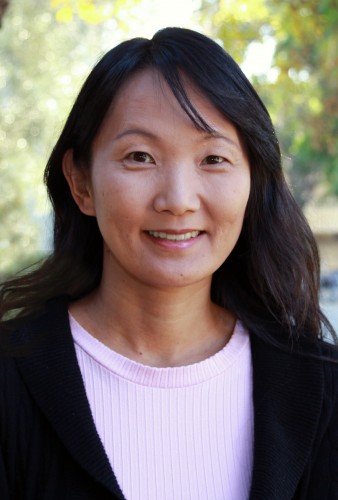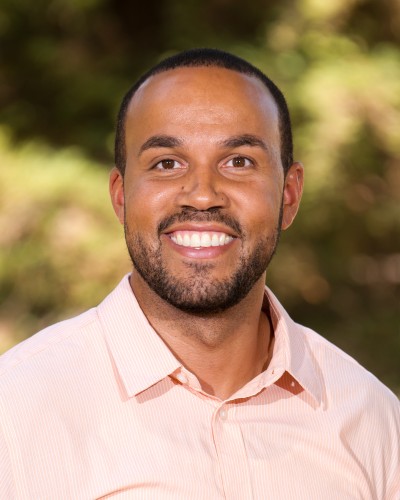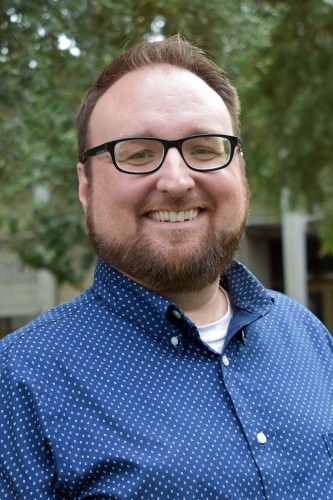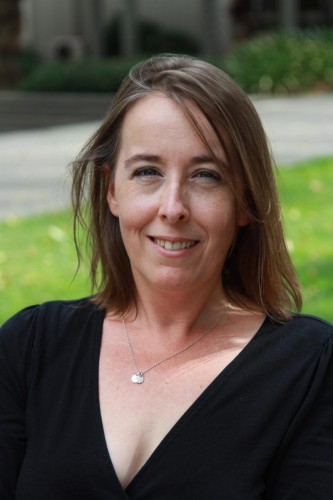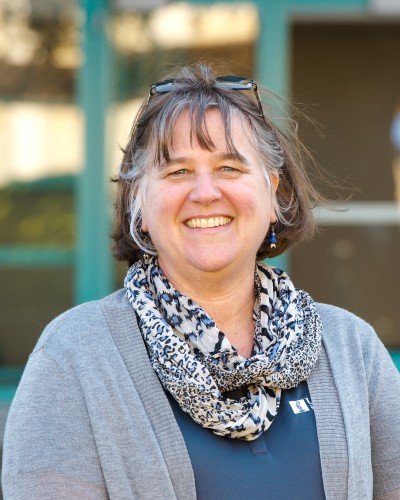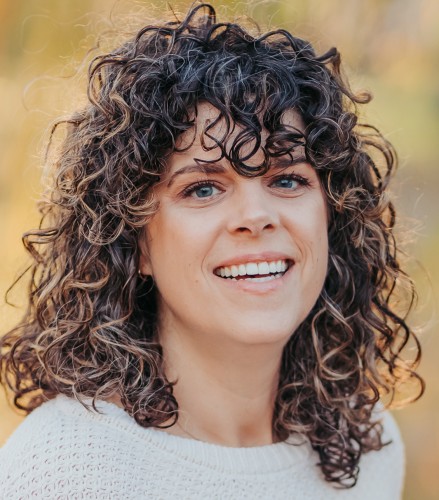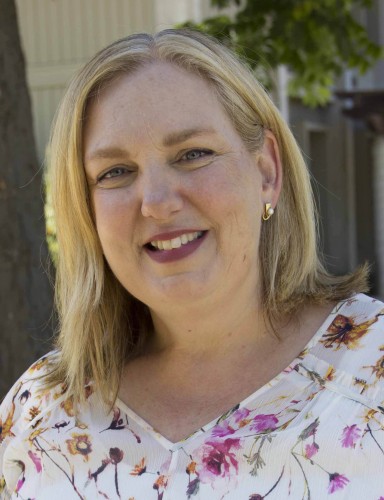Tony Albano
Associate Professor
Dr. Tony Albano is an Associate Professor in the School of Education where he teaches courses in testing, assessment, and data science. His research aims broadly to improve teaching and learning via effective educational and psychological measurement, including through improvements in psychometric methods for scaling and modeling assessment results, and through enhanced accessibility in test design and implementation. Dr.
Rebecca Ambrose
Professor
After teaching middle school math for ten years, I decided to pursue a PhD to get a fresh perspective on the issues I observed every day in my classroom and thought that maybe I could help develop remedies that would help other teachers, as well.
Heidi Ballard
Professor and Chancellor’s Fellow
Heidi Ballard is the Founder and Faculty Director of the Center for Community and Citizen Science. You can find more information about her past and current projects, and sign up for occasional updates at the Center’s website.
Chelsey Baxter
Outreach Advisor, ETS Shasta, College Opportunity Programs
Jared Beldon
Program Advisor, GEAR UP Rural Valley Partnership, College Opportunity Programs
Carolynne Beno
Lecturer
Education/Credentials
Ed.D. Educational Leadership, University of California at Davis, June 14, 2017
Clear Administrative Services Credential, September 2015
Education Specialist Instruction Credential, Level 2, National University, November 2012
M.S. Special Education, National University, January 2007
B.A. Psychology, University of California at Davis, December 2003
B.S. Exercise Physiology, University of California at Davis, December 2003
Megan M. Bettis
Lecturer/Supervisor, Science Teacher Credential and Young Scholars Program Director
Megan M. Bettis is a lecturer/supervisor of Teacher Education at UC Davis working primarily with secondary science teacher candidates. Additionally, she serves as the director of the UC Davis Young Scholars Program, a residential research program for high school juniors and seniors.
Samuel Blanco III
Director, Pre-College TRIO Programs, ETS/Upward Bound UC Davis Campus, College Opportunity Programs
M. Yianella Blanco
Assistant Professor
Dr. Yianella Blanco is an Assistant Professor in the School of Education. Her research interests focus on the teaching and learning of Latine/x histories and experiences, particularly those of Central America(ns) and how those intersect with American empire. Dr. Blanco’s research draws from community-based and participatory action research methods.
Lacey Boatman
Lecturer
Cynthia Carter Ching
Professor
Cynthia Carter Ching (she/her/hers) is Professor of Education and a former Interim Dean (2023-24) and Associate Dean for Academic Programs (2016-2020; 2022-23) in the UC Davis School of Education. During the COVID-19 pandemic, 2020-2022, she served as the UC Davis Interim Vice Provost and Dean of Undergraduate Education. In her research, funded by the National Science Foundation and others, she studies the intersection of technology, learning, collaboration, identity, and embodiment.
Mark Cayabyab
Program Advisor, ETS UC Davis Campus, College Opportunity Programs
Damian Chapman
Assistant Dean, Finance, Administration and Strategy Development
Susanna Cooper
Executive Director, Wheelhouse
Before joining the School of Education to initiate Wheelhouse, Ms. Cooper served as an independent consultant and as longtime advisor on pre-K-to-14 education issues for the leader of the California State Senate. In that role, she shaped and shepherded the Pro Tem’s education agenda, provided counsel on education budget matters, and led multi-year campaigns to increase quality pre-kindergarten opportunities for low-income children, reduce the number of high school dropouts, and strengthen high school-post-secondary pathways.
Arturo Cortez
Visiting Faculty
Arturo Cortez, Ph.D. is a Visiting Assistant Professor at the University of California, Davis. As a learning scientist, Dr. Cortez explores how justice- and future-oriented contexts of teaching and learning can support educators and young people to imagine beyond today’s injustices. In particular, he is interested in how intergenerational and transdisciplinary collaboratives speculate new possible futures, mediated by their participation with everyday technologies in gaming contexts, for example. As such, Dr.
Marcela G. Cuellar
Associate Professor and Chancellor’s Fellow
Marcela Cuellar joined the School of Education in July 2014. She received her doctorate in Higher Education and Organizational Change at the UCLA Graduate School of Education & Information Studies. Her research examines access and equity in higher education, Hispanic Serving Institutions (HSIs) and emerging HSIs, and Latinx student success. More specifically, Dr. Cuellar employs quantitative and qualitative methods to explore Latinx students’ experiences at HSIs and emerging HSIs and how they are empowered as a result of their educational experiences during college and beyond.
Pamela Dunlap
Program Advisor, Upward Bound Shasta, College Opportunity Programs
Kerry A. Enright
Associate Professor
I research the relationship between Latinx students’ everyday uses of language (English and Spanish) and their engagement in language and literacy practices in institutional settings (classrooms and professional work-study placements). Some schools identify bilingual adolescents as “limited” in their English proficiency even though they use sophisticated literacy repertoires outside of school; other learners are deemed ”fluent” in English but still struggle with the language and literacy demands of their academic coursework or workplace.
Nancy Erbstein
Associate Professor in Residence
My work focuses on how communities and regions produce and disrupt disparities in youth well-being, with emphasis on disparities associated with race/ethnicity, immigration, socio-economic status and geographic location. My interest in youth well-being situates my activity at the intersection of educational reform, public health, youth development and community development. I ground my work conceptually at the nexus of theories of development in social ecological contexts, critical human geographers’ analyses of space and place as socially produced, and critical race theory.
Tracy Falk
Undergraduate / Graduate Program Coordinator
Taylor Ferdinandsen
Lecturer/Supervisor
Taylor Ferdinandsen is a lecturer in the School of Education and the supervisor of the Single-Subject English Language Arts Credential Program. She undertakes this role after teaching English and ELD for six years at Vacaville High School, where she maintains a role as the EL Coordinator. She received her Bachelor’s degree in English from Santa Clara University, and a Master’s in Education at UC Davis.
Elizabeth Zeiger Friedmann
Research Fellow
Betsey Friedmann is a research fellow at Wheelhouse and the California Education Lab. She received her Ph.D. in Education with an emphasis in School Organization and Educational Policy from the University of California, Davis. Her research focuses on issues related to college access and success, including financial aid and transfer pathways from community colleges.
Jacqueline Galicia
Academic Coordinator, Upward Bound UC Davis Campus, College Opportunity Programs
Jennifer Gama-Rodríguez
Assistant Director, ETS UC Davis Campus, College Opportunity Programs
Stacey R. Garrett
Project Director, GEAR UP Rural Valley Partnership, College Opportunity Programs
Kevin Gee
Professor and Chancellor's Fellow
Maddy Gorrell
Senior Writer
As Senior Writer, Maddy oversees content strategy and creation that promotes faculty and graduate student research. She also leads production of the monthly newsletter and collaborates with stakeholders on website changes.
Chris Griesemer
Executive Director, Sacramento Area Science Project
Eva Guralnick
Director of Marketing and Communications
Eva Guralnick joined the UC Davis School of Education in June 2015 as the Director of Marketing and Communications. As the chief marketing officer for the School she manages all branding and outreach efforts.
Jennifer Gutierrez-Padilla
Program Advisor, ETS UC Davis Campus, College Opportunity Programs
Anna Harrison
Program Assistant, Upward Bound Siskiyou, College Opportunity Programs
Cassandra M.D. Hart
Professor and Chair of CANDEL
Cassandra Hart is an associate professor of education policy. She evaluates the effects of school, state and national education programs, policies, and practices on overall student achievement, and on the equity of student outcomes. Hart’s work has focused on online education in both K-12 schools and community colleges, school choice programs, school accountability policies, and effects on students of exposure to demographically similar teachers.
Peggy Harte
Youth Education Program Manager, Center for Community and Citizen Science
Peggy Harte develops citizen science curriculum as well as professional learning opportunities for K-12 educators, engaging with students and teachers across a variety of projects ongoing at the Center for Community and Citizen Science. She is a former classroom teacher and elementary science specialist with over 20 years of experience.
Alicia Herrera
Lecturer
Patti Herrera
Lecturer
LaToya Thompson-Hervey
Program Advisor, ETS UC Davis Campus, College Opportunity Programs
Jennifer Higgs
Associate Professor
Jennifer Higgs is an Associate Professor of Learning and Mind Sciences and Language, Literacy, and Culture. Drawing from sociocultural learning theories and employing methodologies such as design-based research and survey research, she investigates young people’s and teachers’ sense-making of digital tools and ecologies that invite new forms of reading, writing, and participation; support structures that may help teachers facilitate equitable uses and understandings of digital technologies; and the spread and scale of educational innovations in our advanced digital age. Dr.
Sylvia Hill
Program Policy Analyst, ETS/Upward Bound Shasta, College Opportunity Programs
Kim Holsberry
Supervisor, Multiple Subject Credential
Education
- CLAD (2004)
- Certificated Early Literacy Group Teacher, CSU Bernardino (1997)
- Certificated Reading Recovery Teacher, CSU Bernardino (1994)
- B.A.
Stephanie Jauregui
Program Advisor, GEAR UP Rural Valley Partnership, College Opportunity Programs
Karina Jimenez
Administrative Assistant
Karina Jimenez is the Administrative Assistant for the California Education Lab and Wheelhouse. She assists with research and administrative activities across the two centers. Before working for the School of Education, Karina worked as a Peer Advising Counselor and Special Projects Assistant for the UC Davis Center for Educational Opportunity Program. Karina holds a B.A. degree in History and two minors in English and Latin American and Hemispheric Studies from the University of California, Davis, and graduated with High Honors.
Margarita Jimenez-Silva
Professor
Prof. Margarita Jimenez-Silva’s research focuses on preparing and supporting teachers to work with culturally and linguistically diverse learners, especially in addressing emergent bilinguals’ linguistic and academic content development. More specifically, her research strands include teacher education pedagogy and curriculum, educational policy, and family/community engagement. Her research has been published by journals such as Harvard Educational Review, Childhood Education, and the Journal of Research on Childhood Education.
Akemi Joe
Business and Financial Services Specialist
Akemi Joe earned a bachelor’s degree in Psychology from UC Davis in 2014. She brings with her an extensive knowledge of the campus from her previous work at the School of Education Student Services, Office of the Chancellor and Provost, and Design and Construction Management.
Rae Johnsen
Program Policy Analyst, GEAR UP Rural Valley Partnership, College Opportunity Programs
Renee Johnson
Program Director, Upward Bound Siskiyou, College Opportunity Programs
Anne Jones
Assistant Dean of Student Affairs and Community Partnerships
Anne Jones is the Assistant Dean of Student Affairs and Community Partnerships for the School of Education. She provides leadership, planning and management of programs and services in all areas relating to student services, school partnerships and K-12 youth programs, creating and overseeing services that promote student and academic success. As a key advisor to the Dean and member of the Senior Leadership team, Jones plays a central role in student and academic program planning, policy setting, outreach, strategic planning, organizational development, and risk management.
Car Mun Kok
Director of College Opportunity Programs
Dr. Car Mun Kok joined the UC Davis School of Education in November 2021 as the Director of College Opportunity Programs, housed under the REEd Center. Car Mun provides leadership for the federally funded GEAR UP, Educational Talent Search and Upward Bound programs which serve middle and high school students throughout the Sacramento Valley and Northern California areas.
Michal Kurlaender
Chancellor’s Leadership Professor
Michal Kurlaender investigates students’ educational pathways, in particular K-12 and postsecondary alignment, and access to and success in higher education. She has expertise on alternative pathways to college and college readiness at both community colleges and four-year colleges and universities. In addition to working with national data, Kurlaender works closely with administrative data from all three of California’s public higher education sectors—the University of California, the California State University and the California Community College systems.
Amy Liedstrand
Student Services Program Assistant
Lauren E. Lindstrom
Professor
Dr. Lauren E. Lindstrom is an active researcher whose areas of interest include autism and developmental disabilities, special education, career and college readiness and transition services for youth with disabilities, and access to quality education for families in poverty. She has been recognized internationally for her work promoting employment and access for individuals with disabilities. She is an affiliated faculty member at the UC Davis MIND Institute and a member of the UC Davis Graduate Group in Education.
Celia Lopez
Policy/Program Analyst, GEAR UP Rural Valley Partnership, College Opportunity Programs
Nicole Miller
Program Assistant, ETS/Upward Bound UC Davis Campus, College Opportunity Programs
Chantal Mace
Lecturer, Multiple Subject Credential
Chantal Mace joined the School of Education faculty with 15 joyful years of experience as a classroom teacher. Teaching has been woven into the fabric of her family history for several generations. In 2007, she earned her doctorate from St. Mary’s College, conducting case study research on teacher persistence in an era of profound attrition rates. Chantal is actively involved with Words Take Wing, an organization here at UC Davis, founded by her mentor Dr.
Alyssa Macias
Assistant Director, Upward Bound UC Davis Campus, College Opportunity Programs
Tom Mackey
Managing Executive Director of Development
Thomas (Tom) Mackey started his role as Managing Executive Director of Development for the School of Education in May 2024.
Lee Martin
Professor
Robin Martin
Director of Educational Research and Evaluation
Robin Martin joined the UC Davis School of Education in 2016 as the Director of Educational Research and Evaluation. Having served in both K-12 policy organizations and public school districts, Robin brings over 13 years of practiced experience in education policy, research, assessment, and program implementation and evaluation.
Lynn Martindale
Lecturer/Supervisor, Agricultural Credential
By appointment only
Education
EdD – Drexel University, Sacramento, CA – expected date of completion, 2014
M.S., Agriculture – California Polytechnic State University, San Luis Obispo – 1990
Pupil Personal Service – Fresno Pacific University, Fresno, CA - 1995
Danny C. Martinez
Professor and Chancellor’s Fellow
Danny C. Martinez is Professor in the Language, Literacy, and Culture program area in the School of Education. His research explores the cultural, racial, and linguistic experiences of Black and Latinx youth in literacy learning contexts, and teacher learning as it relates to leveraging youths’ rich communicative resources. His research is inspired by his experience as a literacy teacher in San Francisco and Los Angeles.
Paco Martorell
Professor and Chair of the Graduate Group in Education
Francisco (Paco) Martorell joined the School as an assistant professor in July 2014. Martorell completed his PhD in economics at UC Berkeley. Prior to joining the School, he was an Economist at the RAND Corporation and was a professor at the Pardee RAND Graduate School since 2006. He has broad research interests in both higher education and K-12 policy. Current projects cover areas including developmental education in colleges, the effects of grade retention, the returns to for-profit colleges, the impacts of school facility investments, and community college tuition subsidies.
Sophia Mattingly
Lecturer
Education
University of California, Davis, CA
Ph.D. Education (Language, Literacy and Culture), Jun 2015
University of Kansas, KS
National Consortium for Teaching about Asia Summer study tour in
China, Jun 2010
• NCTA Summer institute for alumni designed to facilitate teaching and learning about East Asia in the K-12 curriculum via participation in a variety of hands-on experiences in Asia.
Jordan McManus
Program Advisor, ETS Shasta, College Opportunity Programs
Sophia Meals
Marketing Specialist
As the Marketing Specialist, Sophia works on marketing strategy and develops content for everything from social media to the monthly newsletter, web presence, print pieces, and more. She loves building relationships across campus, tracking social media analytics, and the oxford comma.
Noelhi Mendez
Program Advisor, GEAR UP Rural Valley Partnership, College Opportunity Programs
Ryan Meyer
Executive Director, Center for Community and Citizen Science
I direct the Center for Community and Citizen Science at the UC Davis School of Education. Our mission is to help scientists, communities, and other members of the public collaborate on science to address environmental problems as a part of civic life. Learn more and sign up for our mailing list here.
Elizabeth Montaño
Associate Professor of Teaching in Education
Education
Doctorate in Education: Educational Leadership for Social
Justice
Loyola Marymount University, Los Angeles
California Single Subject Credential in English with CLAD
Certification
University of California, Berkeley (current)
M.A. in Education: Language, Literacy and Culture
University of California, Berkeley
B.A. in Political Science & Chicana and Chicano Studies
University of California, Los Angeles
Lola Muldrew
Associate Program Chair, Teacher Education
Education
Ph.D., Math Education, University of California,
Davis, December 2012
Dissertation Title: The Meaning of Adversity within
Traditional K-12 Math Classrooms in the United States from the
Perspective of African-American Individuals
Advisor: Dr. Rebecca Ambrose, School of Education
Master of Arts in Teaching Mathematics (M.A.T.), University of California, Davis, June 2007
Dr. Christina E. Murdoch
Executive Director, Center for Applied Policy in Education (CAP-Ed)
Education is all a matter of building bridges.
—Ralph Ellison, author of Invisible Man
Center for Applied Policy in Education (CAP-Ed)
Christina E. Murdoch serves as Executive Director of the Center for Applied Policy in Education within the UC Davis School of Education. In this role, Christina develops and directs professional learning programs for school district superintendents, principals and teachers including the following:
• Superintendents’ Executive Leadership Forum (SELF)
Faheemah N. Mustafaa
Assistant Professor
Dr. Faheemah N. Mustafaa joined the School of Education as an assistant professor (Learning and Mind Sciences) in 2019. She is also a member of the Human Development Graduate Group. Mustafaa has a background in psychology and focuses on student experiences across the lifespan. She also holds an interest in children’s development across contexts (including school, community, and the home).
Hugo Palacios
Program Advisor, GEAR UP Rural Valley Partnership, College Opportunity Programs
Katie Parry
Science Instructor, Upward Bound Siskiyou, College Opportunity Programs
Cynthia M. Passmore
Professor
Research Interests
Science Education; Secondary Education
Education
Ph.D., Curriculum and Instruction – University of Wisconsin, Madison – 2002
Broadcast, Print or Electronic Media
modelbasedbiology.com
modelinglivingearthbiology.org
Alexis Patterson Williams
Associate Professor, Chair of Teacher Education and Chancellor’s Fellow
Alexis Patterson Williams, Ph.D., joined the School of Education in July 2015 as an Assistant Professor in science education. She is currently a CAMPOS Faculty Scholar and is excited to work with her cohort to develop a research center that focuses on increasing the participation of women of color in STEM related fields.
Patricia D. Quijada
Associate Professor
Education
Ph.D., Educational Psychology, University of Wisconsin –
Madison
Emphasis: Human Development Minor: Youth Studies and
Multicultural Education
Ed.M., Youth Development: Prevention Science and Practice
Harvard University, Graduate School of Education
Ed.M., Counseling Processes
Harvard University, Graduate School of Education
Multiple Subject, Elementary Credential
University of San Diego
B.A. and B.S. Political Science and Sociology
University of California at Riverside
Angela N. Radford
Director, ETS Shasta, College Opportunity Programs
Cheri Radke
Academic Student Employment & Instructional Support Coordinator
Jessy Ramirez
Program Advisor, ETS UC Davis Campus, College Opportunity Programs
My name is Jessy A. Ramirez Ruiz Talamantes, a first-generation college graduate pursing my master’s in Rehabilitation counseling.
Drina Ramirez
Supervisor, Multiple Subject Credential
Lorena Ramos
Program Advisor, ETS UC Davis Campus, College Opportunity Programs
Brittany Rankin
Program Advisor, ETS Shasta, College Opportunity Programs
Brittany is part of the ETS team in Shasta County and serves as a Middle School Advisor. She is a graduate of UNC Greensboro and is passionate about supporting the next generation on their academic journey.
Sherrie Reed
Executive Director
Sherrie Reed serves as Executive Director for California Education Lab. In this role, Sherrie is managing and directing the research efforts of numerous federal and foundation grants and supporting the faculty Principal Investigators. These projects represent unprecedented collaboration among the primary public education segments in the state of California, including formal partnership between the University of California, Davis and the California Department of Education, and collaboration with the California State University Chancellor’s Off
Mary M. Reid
Director of Student Support, Outreach, Recruitment and Student Experience
Rachel Restani
Research Fellow
Rachel Restani advocates for social justice through mathematics education. After teaching high school mathematics in linguistically and economically diverse communities, Rachel has been driven to support teacher education and professional development using problem-based methods that align with students’ cultural backgrounds.
Gloria M. Rodriguez
Professor and Associate Dean of Faculty Affairs
Office hours: Winter and Spring Quarters 2020 — By Appointment Only
Gloria M. Rodriguez’s current research explores notions of educational investment that reflect efforts to build upon community strengths in order to address community needs within and beyond educational settings. Dr. Rodriguez also engages in research that focuses on the political economic conditions and educational trajectories of Chicana/o-Latina/o communities, other communities of color, and low-income populations in the U.S.
Bree Rodriguez
PhD/MA Graduate Program Coordinator
About:
Briana (Bree) Rodriguez currently serves as the Ph.D./MA Graduate Program Coordinator in the School of Education. Bree began her career at CSU, Fresno in 2018, and joined UC Davis a year later in Fall 2019. A majority of her career has been spent working exclusively with graduate students and programs. In her spare time she enjoys baking, traveling, and shuttling her son from one activity to the next.
Professional Philosophy:
Rosaisela Rodriguez
Associate Chair, CANDEL (Ed.D) Educational Leadership Program
Claudia Rodriguez-Mojica
Associate Professor of Teaching in Education and Bilingual Coordinator–Spanish
Dr. Claudia Rodriguez-Mojica is an Associate Professor of Teaching in Education and the Spanish Bilingual Authorization Coordinator. A UC Davis alumnus, she earned her bachelor’s degree in human development and minor in Chicana/o Studies from UC Davis. While at UCD, she participated in the California Mini-Corps program where she served as a teaching-assistant in schools with large numbers of migrant students. She received her multiple subject teaching credential with a bilingual authorization (formerly known as BCLAD) from CSU Sacramento.
Rebecca Rosa
Lecturer/Supervisor, Social Science Credential
Heather Rose
Associate Professor
Office hours: By appointment. Room 125 SOEB.
Research Interests
Economics of education; Education Policy and Governance; Quantitative methods; School finance
Alicia Rusoja
Assistant Professor
Dr. Alicia Rusoja’s interdisciplinary research lies at the intersection of Latinx/Chicanx studies, critical education/critical literacy studies, and university-community/research-practice partnerships. As a Latina immigrant and activist-scholar, she employs participatory and critical community-based qualitative research methodologies to understand the immigrant rights organizing of Latinx immigrant youth, adults and families.
Brent Sasaki
Assistant Director of Development
Brent Sasaki holds over 26 years of experience in sponsorship and business development. He specializes in corporate partnerships and account management, and has a proven track record of delivering results, providing excellent customer service, and generating innovative and creative ideas.
Heather Schlaman
Lecturer
Tom Smith
Professor and Dean
Tom Smith is a highly accomplished researcher, educator, and leader with more than 30 years of experience in education, and has held several leadership roles at UC Riverside, including interim provost and executive vice chancellor, dean of the Graduate School of Education, and interim vice chancellor for Student Affairs. Prior to joining UC Davis in 2024, he was a professor of public policy and education in Vanderbilt University’s Peabody College.
Nicole Sparapani
Associate Professor
Nicole Sparapani, Ph.D., is an associate professor within the School of Education and the MIND Institute. Dr. Sparapani’s background in speech-language pathology, developmental psychology, and education has informed her research agenda, which focuses on the dynamic and transactional interplay between children and their classroom environment. The overarching goal of her research agenda is to improve the educational experiences and outcomes of neurodivergent learners, including children on the autism spectrum. Dr.
Lisa Sullivan
Lecturer/Supervisor, Multiple Subject Credential
Dr. Lisa Sullivan brings a range of skills and experience to her work in Teacher Education. She worked as a classroom teacher in East Los Angeles and in Northern California before obtaining her doctorate from UC Davis in Learning and Mind Sciences. Dr. Sullivan has worked extensively with both classroom teachers and higher education faculty to improve teaching and learning. To date, she has conducted over twenty program evaluations for K-12 and university based education initiatives. Dr.
Amanda Toering
Academic Personnel Analyst, Associate Deans’ Office
Nancy Tseng
Associate Professor of Teaching in Education and Bilingual Coordinator–Mandarin
Dr. Nancy Tseng is an Associate Professor of Teaching in Education in the School of Education. She began her career in education as a public elementary school teacher. Her research interests focus on the development of productive student-teacher relationships in elementary classrooms, identifying instructional practices that support mathematics learning and teaching, and pre-and in-service teacher education. Dr. Tseng received a BA in psychology, elementary teaching credential, and MA from the University of California, Davis. She has a Ph.D.
Yuuko Uchikoshi Tonkovich
Professor and Associate Dean of Academic Programs
Research Interests
Early Childhood; Multilingual Learners; Bilingualism and Bilingual Education; Educational Television and Multimedia; Language Acquisition; Early literacy Development; Quantitative Methods
Professional Experience
Professor, School of Education, University of California, Davis, 2019–present
Associate Professor, School of Education, University of California, Davis, 2012–2019
Assistant Professor, School of Education, University of California, Davis, 2004–2012
Matt Wallace
Associate Professor of Teaching in Education
Education
- BS—University of California, Davis
- MA—San Francisco State University
- PhD—University of California, Davis
Professional Experience
- Associate Professor of Teaching in Education, UC Davis, 2023–present
- Lecturer/Supervisor of Teacher Education, UC Davis, 2012–2023
- Director, Math for America Berkeley, 2012
- Lecturer, University of California, Berkeley, 2012
- University Supervisor, California State University, East Bay, 2011-2012
- Mathematics Teacher, Elk Gr
Tim Warkentin
Program Director, Upward Bound Shasta, College Opportunity Programs
Maile Weldon
Program Advisor, GEAR UP Rural Valley Partnership, College Opportunity Programs
Megan Welsh
Associate Professor and Chancellor’s Fellow
Megan Welsh joined the School in July 2014 as an assistant professor in educational assessment and measurement. Since 2008, she was an assistant professor at the University of Connecticut. Her primary areas of research include test validity analysis, the use of assessment as an educational reform lever, grading, and evaluation of educational programs.
Charles E. Wilkes II
Assistant Professor
My research attends to the teaching and learning of Black learners in K-16 contexts. One strand of my research has focused on Black learners’ experiences in mathematics classrooms. A second strand of my research attends to how mathematics instruction supports the learning of mathematical content and the nurturing of positive mathematics identities for Black learners. The third and final strand of my research is supporting pre-service teachers’ and in-service teachers’ development of teaching equitable practices through interventions and professional development.
Lawrence (Torry) Winn
Associate Professor of Teaching in Education, Chancellor's Leadership Professor, Chair of Undergraduate Programs, Executive Director of Transformative Justice in Education (TJE) Center
Dr. Lawrence Torry Winn brings over twenty-five years of diverse professional experience, collaborating and consulting with a range of organizations including foundations, cities, schools, colleges/universities, and non-profits. Notable partners include Casey Family Programs, Annie E. Casey, W.K. Kellogg Foundation, City of Newark (NJ), City of Madison (WI), St. HOPE, University of California, Berkeley, Sierra Health Foundation, MLK Sr. Community Resources Collaborative, and Race to Equity.
Rose Wooldridge
Program Advisor, Upward Bound Siskiyou, College Opportunity Programs
Sara Zalesny
Program Advisor, Upward Bound Shasta, College Opportunity Programs

